40 years of "talking journalism"

Every early morning, when many people are still asleep, Mr. Ta Nhu Dinh (72 years old) is present at the office of the Commune People's Committee to prepare the first news of the day. It has been more than 40 years since he started working in the cultural and radio work of the commune, from the days when he used portable battery-powered speakers and manual tape recorders, to now modern digital technology, but his sense of responsibility and love for the job have never changed.
In Mr. Dinh's memories of working as a "talking journalist", the rainy and flood days of 1971 are still vivid. "At that time, Thuong Mo commune was divided into two areas inside and outside the dike. Outside the dike was the flood diversion area of the Day River, the water was white. I was the Deputy Secretary of the commune's Youth Union, volunteering to carry a loudspeaker and go by boat to inform and mobilize people to prevent floods. It was difficult and dangerous, but I felt proud when I was later rewarded by the Ha Tay Provincial Youth Union. Perhaps the "career fate" started from there," Mr. Dinh said.
After returning to his hometown in 1980 after being discharged from the army, he worked at a cooperative, then became a commune cultural officer, in charge of broadcasting. “At that time, radio was a valuable information channel, people listened to it for hours every day, from the central station to the city, district and commune. If you said something wrong or spoke too quickly, people would call to remind you. Doing this job, you have to be careful with every word,” Mr. Dinh shared.
Not only reading the news, he also edits and filters information from various sources, rewriting it in everyday language, easy to understand, and close to the rural people. Especially during the Covid-19 outbreak, the commune loudspeaker is an effective propaganda tool, quickly updating epidemic prevention and control instructions, quarantine lists, vaccination schedules, etc. to each village and hamlet.
Many people say that broadcasting is a simple job, just reading the news. However, in reality, it takes many hours every day to select, rewrite, and update information to suit the local situation. There are days when it rains, there are power outages, and the speakers are broken, but we still have to find a way to fix it so there is no interruption.
Love the job, overcome difficulties

For Mr. Dinh, radio is the fastest way to communicate to the people. “Written newspapers still need time, but when broadcast on loudspeakers, people can hear it right away. Storms, epidemics, village meetings, commune meetings, commune radio broadcasts so people can “grasp the situation” immediately.
Currently, the Commune Radio Station broadcasts twice a day: in the morning from 6:00 to 6:45, in the afternoon from 17:00 to 17:45, relaying from the central, city, and district stations and broadcasting the commune’s news. Mr. Dinh alone takes on all the stages: writing, reading, checking techniques, recording, editing…
Although the work is hard and the allowance is modest, only over 3 million VND per month, he still sticks with it because of his passion. “Thuong Mo has a tradition of growing yellow shrimp grapefruit. My family also has a few acres of grapefruit, so we have income. Moreover, I have asked to quit many times so that the commune can recruit young professionals, but because the income is low, no one will accept me. So I continue working,” Mr. Dinh smiled lightly.
Director of the Dan Phuong District Culture, Information and Sports Center Bui Thi Quyen said: “The district has 16 communes and towns, each of which has a broadcasting system and staff in charge. Although they are not trained as professional reporters, they are effective "information filters", conveying policies to the people in the most intimate way.”
According to Ms. Bui Thi Quyen, commune radio broadcasters often do not have fixed working hours, are not on the payroll, and lack working conditions, but they are still persistent and dedicated to the community. To encourage this force, the district organizes the Commune and Town Radio Festival every year and has plans to invest in more modern equipment, as well as more reasonable support policies.
Commune radio broadcasters like Mr. Dinh do not have press cards, royalties, or payrolls, but they are still "silent journalists", persistently maintaining the rural information network, connecting people with the government and society.
Amidst the noisy flow of social networks and digital newspapers, there are still quiet people, working hard every morning and evening, keeping the village loudspeakers resounding far and wide, simple but full of responsibility.
Source: https://hanoimoi.vn/lao-nong-hon-40-nam-lam-bao-noi-o-lang-706280.html








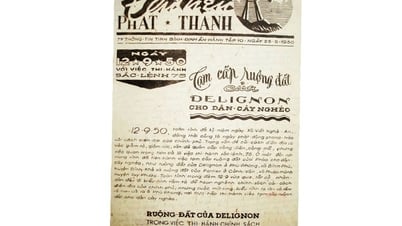





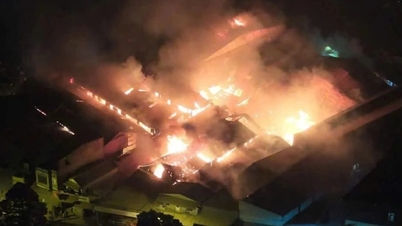
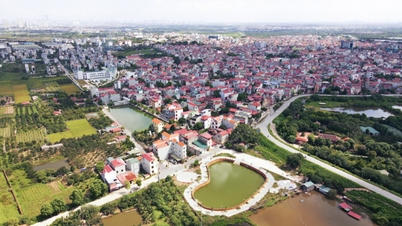







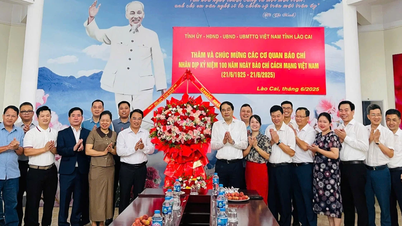




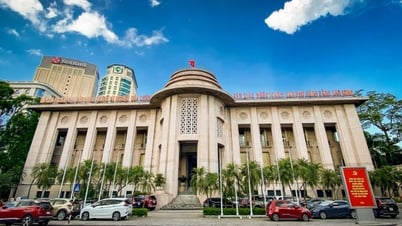








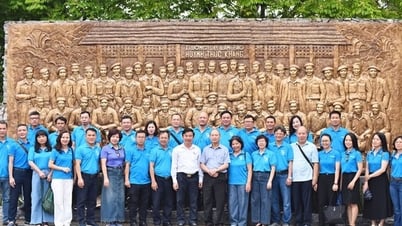


![[Photo] Overcoming the heat, practicing to prepare for the parade](https://vphoto.vietnam.vn/thumb/1200x675/vietnam/resource/IMAGE/2025/6/21/b93392e8da8243b8a32040d19590e048)
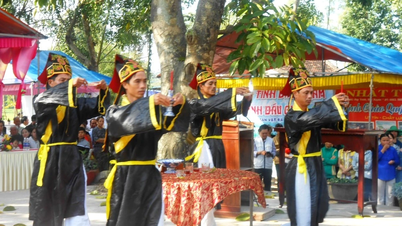

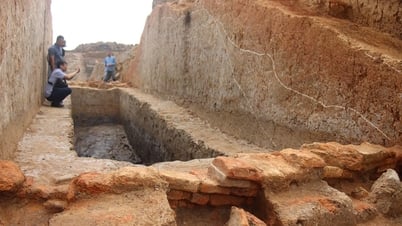







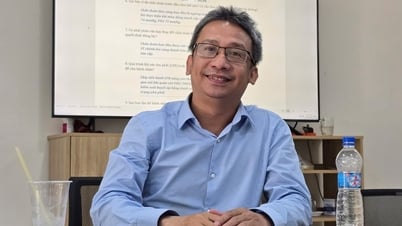


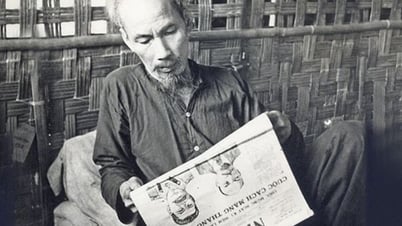
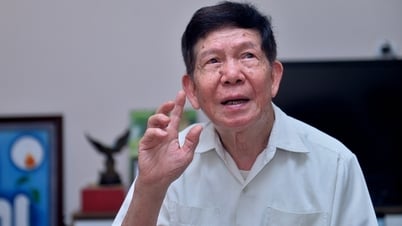









![[Maritime News] Wan Hai Lines invests $150 million to buy 48,000 containers](https://vphoto.vietnam.vn/thumb/402x226/vietnam/resource/IMAGE/2025/6/20/c945a62aff624b4bb5c25e67e9bcc1cb)





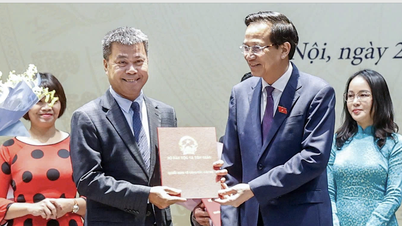

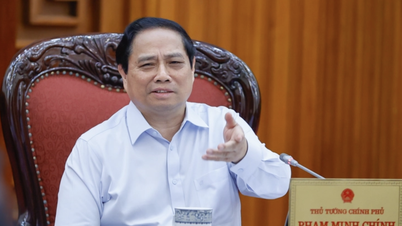






























Comment (0)